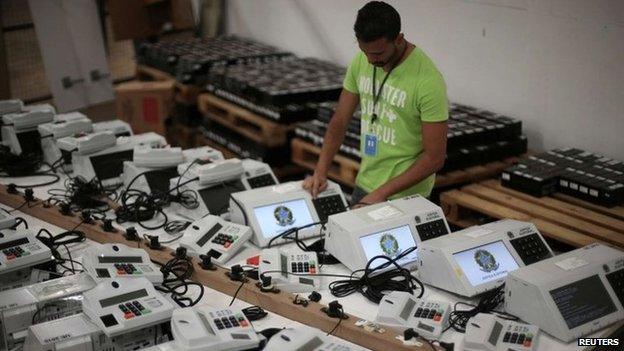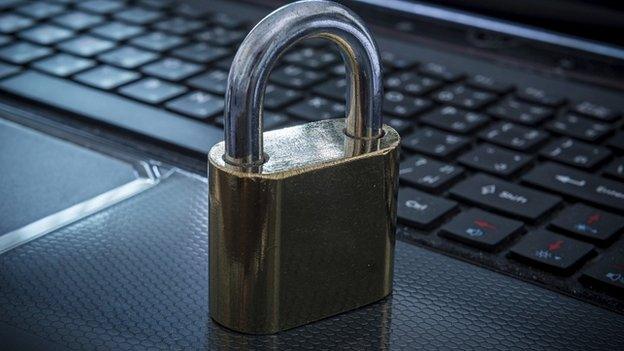Brazil court dismisses hacker threat at presidential vote
- Published

More than 530,000 voting machines will be used across the country.
On the eve of Brazil's presidential election, the Superior Electoral Court has dismissed reports that the country's electronic voting system is vulnerable to hacking.
The court's president, Jose Dias Toffoli, has acknowledged that hackers make frequent attempts to break into the electronic ballots.
But the system was "safe and fraud-proof", Mr Toffoli said.
More than 142 million Brazilians will go to the polls on Sunday.
President Dilma Rousseff, who is running for a second four-year term, is seen as the front-runner.
Her main rivals are former environment minister Marina Silva and the centre-right candidate, Minas Gerais state governor Aecio Neves.
'Clone systems'
Brazilians will also be choosing new senators, members of the Chamber of Deputies, governors and state-level legislators.

Ms Rousseff (centre) is expected to face either Mr Neves or Ms Silva in a runoff vote
O Globo newspaper has reported that the voting machines were the target of 200,000 cyber attacks per second two weeks ago.
"The Electoral Court computer system is attacked regularly, but we have a huge defence system in place, which is activated when our clone systems are targeted," Mr Toffoli explained.
The system was first used in Brazil in 1996 and the technology has since been exported to other countries.
It usually delivers the election results within one or two hours of polls closing.
If none of the candidates in the elections for president or state governor get more than 50% of valid votes, there will be a run-off on 26 October.
Voting is mandatory for those aged between 18 and 70.
- Published3 October 2014

- Published3 October 2014
- Published9 April 2014
